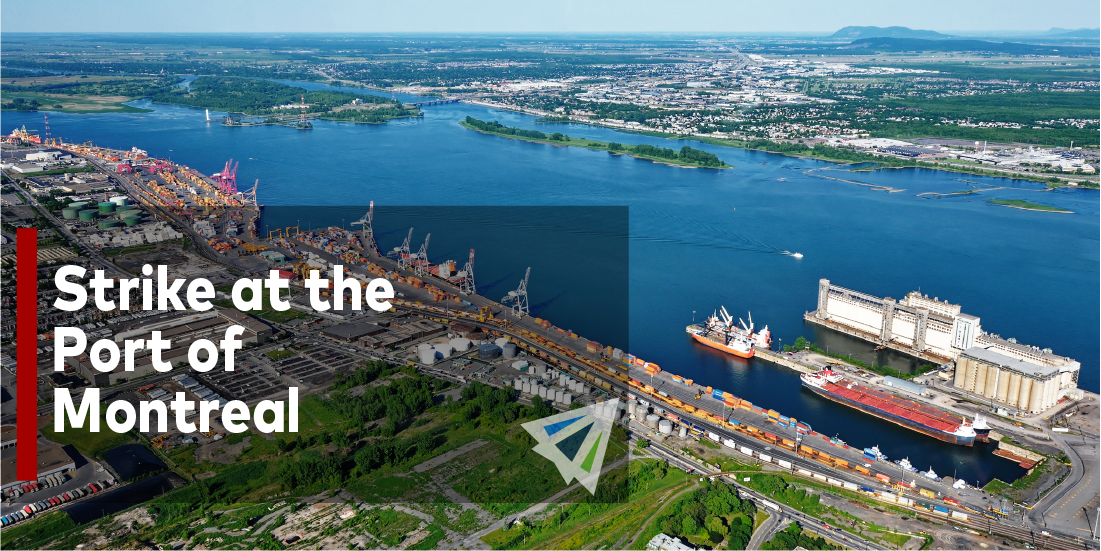Transportation worker strikes are usually inconvenient and scary for shippers – you never know entirely how it’s going to affect your business and whether or not your freight will be caught up and delayed due to the fiasco. As of yesterday, workers at the Port of Montreal began a strike that’s leaving shippers on edge regarding the movement of their cargo.
Here’s the reason for the strike at the Port of Montreal:
Partial Strike
Before the major strike which started on Monday, shoremen began a partial strike last Tuesday. The partial strike came as a response to their employers refusing to provide a guaranteed base pay regardless of hours worked. Shoremen started a partial strike refusing to work overtime or on weekends in retaliation to the news.
The Canadian Unit Of Public Employees Local (CUPE) announced on Friday a 72-hour notice to the employees they represent as a union (around 1,100 workers) that beginning on Monday – or yesterday – the workers would begin a full strike in hopes of a settlement regarding the port employers’ decisions to change its regular schedules and withdraw guaranteed base pay.
Full Strike
The Maritime Employers Association – the employer responsible for the decision to withdrawal guaranteed base pay and change it’s regular work schedules – was frustrated with the CUPE’s decision to issue a general strike. They had issued a statement explaining their frustration with the strike happening during such a crucial time for economic and supply chain recovery (due to the lasting effects of early 2020 on international supply chain.)
The Effect on Shippers
It’s not always certain what the effect of a full strike will be on shippers, but the same always applies – major strikes result in major cargo delays when they are drawn out and not resolved quickly. Some believe the widespread effect of such a strike will put undue pressure on Prime Minister Justin Trudeau to step in and take government action to bring back-to-work legislation in place.
Although the effect on shippers can’t be entirely predicted, we can reference recent events for a better understanding of what it may look like. In the strike during 2020, steamship lines were forced to redirect Saint John, New York-New Jersey, and Halifax and the lasting impact of the strike created container backlogs that went for months.
The difference between the 2020 strike and now? Port congestion is significantly worse. As we escaped the multi-month shutdowns of 2020, shippers, manufacturers, and buyers all resumed business at significantly higher levels than before, creating an influx in shipments beyond what most ports were expected to handle. The effect has been port congestion beyond belief.
In summary, a full strike for any period of time might create delays not only for cargo routed to the Port of Montreal, but also a trickle-down effect on ports affected by potential redirected vessels from the Montreal Port.
